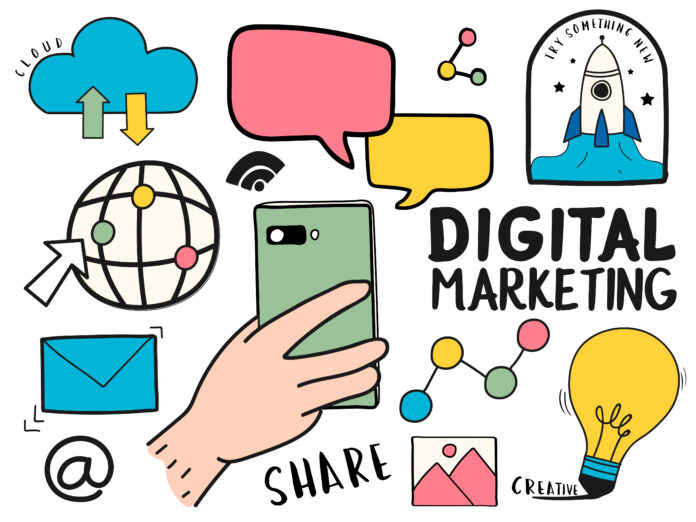Introduction of What is Digital Marketing
Here is the answer of What is Digital Marketing. Digital marketing refers to a variety of online business practices used to promote a company’s goods, services, or brand. Digital marketing, as opposed to traditional marketing, makes use of the internet’s power, a variety of online platforms, and data-driven insights to interact with target consumers in a more effective and customized way. In this blog, we’ll explore the intricacies of digital marketing, its key components, and effective strategies to navigate this ever-evolving landscape.
Key Components of Digital Marketing
- Search Engine Optimization (SEO): SEO is the art and science of optimizing a website to rank higher on search engine results pages (SERPs). By using relevant keywords, improving website structure, and creating quality content, businesses can increase their visibility in organic search results.
- Content Marketing: Content is king in the digital marketing world. Creating valuable, informative, and engaging content through blog posts, videos, infographics, and more helps establish authority and connect with the audience.
- Social Media Marketing: Social media platforms like Facebook, Instagram, Twitter, and LinkedIn provide opportunities for businesses to engage with their audience, build brand awareness, and drive traffic to their websites.
- Email Marketing: Email remains a powerful tool for nurturing leads and maintaining customer relationships. Effective email marketing campaigns deliver personalized and relevant content directly to a subscriber’s inbox.
- Pay-Per-Click Advertising (PPC): PPC advertising allows businesses to display ads on search engines and other platforms, paying only when a user clicks on their ad. This method can yield rapid results and is highly customizable.
- Influencer Marketing: Collaborating with influencers in your industry or niche can help you tap into their existing audience and gain credibility and trust.
- Data Analytics: Data-driven insights are at the heart of digital marketing. Analyzing user behavior, website traffic, and conversion rates helps businesses make informed decisions and refine their strategies.
Effective Digital Marketing Strategies
- Set Clear Goals: For your digital marketing activities, establish SMART (specific, measurable, attainable, relevant, and time-bound) goals. Having defined objectives is essential for achieving any goal, whether it’s driving conversions, brand exposure, or website traffic.
- Know Your Audience: Understanding your target audience’s preferences, pain points, and behaviors is essential. Create buyer personas to tailor your content and messages effectively.
- Quality Over Quantity: Focus on creating high-quality, relevant content rather than churning out a high volume of content. Quality content is more likely to engage and convert users.
- Stay Updated: The digital marketing landscape is constantly evolving. Stay updated with industry trends, algorithm changes, and emerging technologies to adapt your strategies accordingly.
- Mobile Optimization: With the increasing use of mobile devices, ensure your website and content are mobile-friendly to cater to users on smartphones and tablets.
- Consistency is Key: Maintain a consistent online presence across all digital channels, including your website, social media, and email campaigns.
- Test and Iterate: Continuously test different strategies, analyze results, and refine your approach based on what works best for your business and audience.
Why is Digital Marketing Essential
- Global Reach: It transcends geographical boundaries, allowing businesses to connect with a global audience.
- Cost-Effective: It is often more cost-effective than traditional advertising methods, making it accessible to businesses of all sizes.
- Targeted Marketing: It allows for precise targeting based on demographics, interests, behavior, and more, ensuring that your message reaches the right audience.
- Real-Time Engagement: It enables real-time interactions with your audience, fostering immediate engagement and feedback.
- Measurable Results: It provides robust analytics tools that allow businesses to track the performance of their campaigns and make data-driven adjustments.
Conclusion
It is a disruptive force in business, changing how companies communicate with their customers and accomplish their marketing objectives. Due to its adaptability, precision, and ability to tap into the vast internet audience, it is a crucial tool for enterprises of all sizes. In the digital era, adopting digital marketing is a strategic need for survival and success in a continuously shifting environment.




